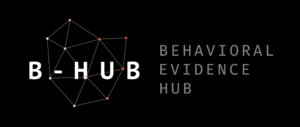
Getting More Work for Nothing?
Organization : B-Hub Editorial Team
Project Overview
Project Summary
A non-governmental organization in Switzerland provided non-monetary awards to some of its most productive temporary workers.
Impact
Recognizing high-performers publicly and congratulating them on their success led to productivity gains of 9-12%, on average.
Cost
The cost of this intervention was minimal because the award that individuals were eligible for was congratulatory in nature and carried no monetary value.
Challenge
Employers often try to incentivize their workers to put forth maximum effort through special recognition programs or awards. These awards are often accompanied by social recognition, prestige, enhanced career prospects, and, occasionally, a monetary prize. Since these awards are so multi-faceted, it is often difficult to figure out which aspect of the award motivates the employees. If employers were able to find out which of these aspects of the award most motivated employees, then they would be able to design more targeted, and perhaps more effective, award programs.
Design
Researchers partnered with a non-governmental organization (NGO) in Zurich to hire 150 college students for a data entry task. The students were given about two hours during one of 16 work sessions to complete as much of the data entry task as possible. During each session students worked at individual computers in a shared room with 7-12 other students. Prior to the start of the session, an employee of the NGO introduced the task, restated how much they would be paid for the task, and gave other instructions. In 9 of the 16 sessions, the respondents were also told that the top two performers’ names would be displayed to all participants at the end of the session, and they would receive a special thank-you from the managing director and a congratulatory card signed by the organization. For the other 7 sessions, there were no performance-based incentives or awards mentioned.
Impact
In this randomized control trial, students eligible to receive recognition were 9-12% more productive at completing the data entry task, on average, than those who were not eligible, a significant difference in performance.
The researchers found that not all individuals were motivated equally by the social recognition; in fact, there was little difference in performance between the individuals in the lower half of productivity in either group. However, individuals in the upper quartile of performance who were eligible to receive an award were between 11% and 18% more productive than high performers not eligible to receive an award. While the social recognition award did not motivate all individuals, it was a strong motivator for many and this resulted in overall productivity gains for the overall group that was eligible to receive an award.

** Significant difference between group performance (p<0.01)
Implementation Guidelines
Inspired to implement this design in your own work? Here are some things to think about before you get started:
- Are the behavioral drivers to the problem you are trying to solve similar to the ones described in the challenge section of this project?
- Is it feasible to adapt the design to address your problem?
- Could there be structural barriers at play that might keep the design from having the desired effect?
- Finally, we encourage you to make sure you monitor, test and take steps to iterate on designs often when either adapting them to a new context or scaling up to make sure they’re effective.
Additionally, consider the following insights from the design’s researchers:
- Recognition of top performers is most likely to be effective with task-based work where an individual’s contribution can be clearly measured.
- Think carefully about the various factors that influence your outcome of interest. In this case, the researchers made sure that the computer screen was only visible to the user so that the worker felt a sense of privacy, allowing them to work at their own pace without pressure, and to reflect real world work conditions.
- In this intervention, it was important to emphasize that this award consisted only of social recognition. The researchers did this by specifying that the award had no monetary value whatsoever and that the organization was not hiring, so there were no permanent job prospects.
- In this experiment, the top performers worked even harder when they were eligible to win an award. The researchers believe that the effect of a performance-based award is stronger among those who are already above average because they are more likely to actually win the award.
- The researchers believe that social recognition awards are likely to be most effective within organizations with strong reputations such as, but not limited to, NGOs. However, the researchers conducted a follow-up study where they tested the effects of social recognition on work effort with tasks that have different perceived meanings. They found that, on average, social recognition for pro-social tasks made individuals no more productive than they would be with only social recognition or knowledge of the meaningfulness of the task.
Project Credits
Researchers:
Michael Kosfeld Goethe-University Frankfurt
Susanne Neckermann University of Mannheim


